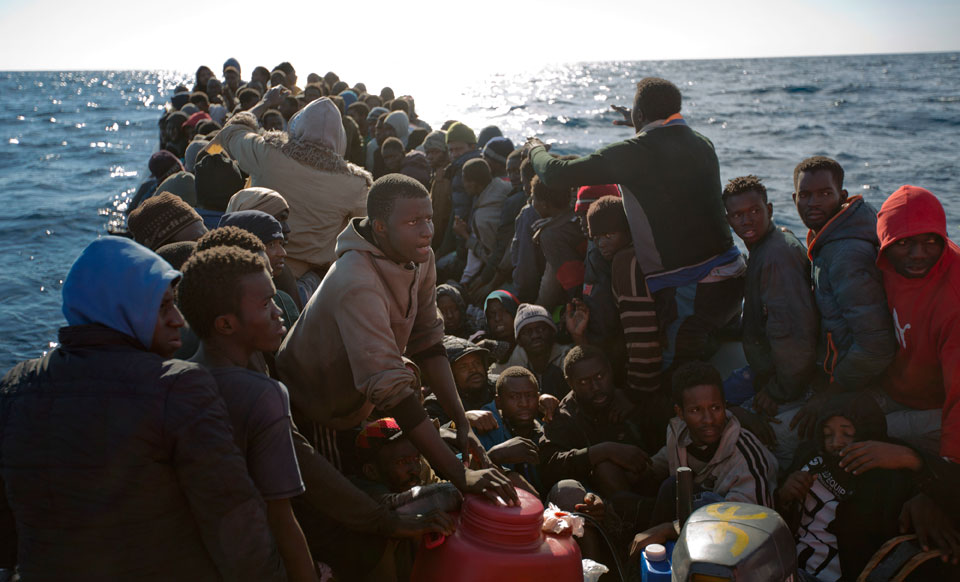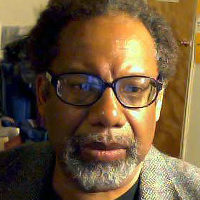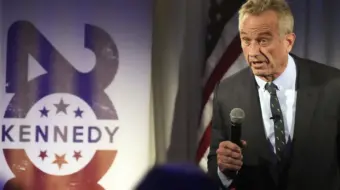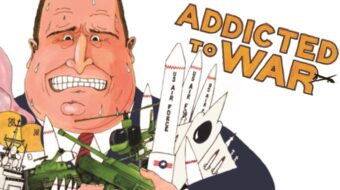
U.S. AFRICOM, acronym for the United States Africa Command, was founded in 2007 in response to what the U.S. Defense Department viewed as a growing threat from the People’s Republic of China and the Russian Federation.
One might have believed that with the end of the Cold War the U. S. government would cease its harassment and oppressive tactics against nations of the Global South, sometimes called the “Third World,” especially in Africa. It has not.
U.S. AFRICOM, led by General Stephen J. Townsend of the United States Army, states that its purpose is to “work alongside African military personnel to support their military operations.” This mission is supposedly designed to aid African countries in combating terrorism. Most of the work is supposedly done through diplomatic means. In fact, according to the AFRICOM website, “U.S Africa Command, headquartered in Stuttgart, Germany, is one of 11 U.S. Department of Defense combatant commands, each with a geographic or functional mission that provides command and control of military forces in peace and war. AFRICOM employs the broad-reaching diplomacy, development, and defense approach to foster interagency efforts and help negate the drivers of conflict and extremism in Africa.”

To some readers, on its face, this mission statement might seem laudable as a supportive endorsement of dialogue and cooperation in the interest of peace and diplomacy. However, it obscures the ominous and odious power of the U.S. military and its corporate interests. It hides the fact that the U.S. is now the world’s only existing superpower, maintaining over 800 military bases around the globe. It is a world naval power whose navy is larger than the next 13 largest navies combined. And, of course, it is the leading capitalist nation with a GDP of over 20 trillion dollars, 99% of which is owned by one percent of its population.
According to a speech made by Iraklis Tsavdaridis at the International Conference Against US/NATO Military Bases, held in Dublin, Ireland, Nov. 16-18, 2018, “The aggressiveness of imperialism is increasing almost everywhere in the world…. In a world where 0.7 percent of the population owns 46 percent of the wealth of the planet and the poorest 70 percent of the population owns a mere 2.7 percent, the inequalities are widening. Almost three and a half billion people (half the world’s population) live in poverty; 821 million live in hunger and 758 million do not have access to clean water. At the same time, according to Stockholm International Peace Research Institute (SIPRI), world military expenditures rose to 1.7 trillion in 2017, a 1.1% increase compared to 2016.”
Citing statistics on average wages in the world’s poorest continent, The Economist writes, “From 1993 to 2008 the average per capita income of sub-Saharan African economies barely budged—it increased from $742 to $762 per year (measured in 2005 purchasing power parity adjusted dollars). If we exclude South Africa and the Seychelles, we see a decline from $608 to $556 over the period.”
Yet Africa is rich
Although its people are poor, Africa is a wealthy continent rich in natural resources. It has tremendous oil fields and is home to five of the top 30 oil-producing countries of the world. It accounted for more than 7.9 million barrels a day in 2019, about 9.6% of the world’s output. Of course, COVID-19 has caused a significant drop in the worldwide output of oil.
Aside from oil, according to NS Energy, “Africa is home to some of the top diamond producing nations with most of the world’s gem-quality diamonds mined there since the 1870s. In 2017, diamond exports from African countries were valued at $9.65 billion in the global market. The U.S.A. is the world’s top buyer of diamond jewelry purchasing more than 40% of all stores.” While both the People’s Republic of China and the Russian Federation are the top two gold-producing countries, both nations producing over 300 tons of gold ore apiece, African countries still produce a significant amount of the world’s gold. South Africa’s production has dropped over the years due to a lack of electricity, closing of mines, and, according to management, labor disputes. Still, it has been able to produce 118 tons of gold for the past year. Ghana came in first this year, producing 142.4 tons of gold. Sudan was third among African countries with 76.6 tons, Mali was fourth with 71.1 tons, and Burkino Faso was fifth with 62 tons. In toto, these countries produced 470.1 tons more gold than produced by either the Russian Federation or the PRC.

Oil, diamonds, and gold are not the only source of wealth in Africa. Zimbabwe’s lithium mines are second to none in Africa. The Bikita mine is one of the largest lithium mines in Zimbabwe. The Bikita mine has a reserve of 10.8 million tons of lithium ore, with a lithium content of 1.4% or 150,000 tons. Africa ranks first or second in the quantity of world reserves of bauxite, cobalt, industrial diamond, phosphate rock, platinum, vermiculite, and zirconium. These precious raw materials come to the global market only by virtue of the painful exploitation of the African people. Of the world’s 28 poorest countries, 27 are in Sub-Saharan Africa, all with a poverty rate above 30 percent.
With these background facts in mind, one could suspect that the mission of AFRICOM is anything but benevolent. It seems that the purpose of U.S. military bases is not only to exploit the gold and wealth of the African people but to encircle both Russia (the principal component of the former Soviet Union) and China. U.S. policy aims to capture, conquer, and exploit Africa’s rich mineral deposits to further enrich and empower the monopoly capitalists and transnational corporations throughout the world.
In that sense, AFRICOM recapitulates the old trading and slaving posts that the European colonial powers established beginning in the 15th century and continuing all through the colonial period. Independence for African nations led in most cases straight into a new era of neocolonialism, where the economies of nominally free countries continued to be dominated by global corporate interests.
The world seems to be on a backward plunge. Instead of aiding the fight against terrorism, AFRICOM seems to be encouraging it. It is supporting the organized assault on behalf of U.S. and international capitalism on African people and at the expense of the other working people of the world.
Setting an example in Libya
Perhaps the most brutal example of this was the war for oil in Libya. U.S. AFRICOM helped to take down Muammar Gaddafi’s autocratic regime, which was in many other ways, however, an exemplary internationalist-minded attempt at establishing a high-functioning Arab socialist republic. Gaddafi was leading a nation that by all accounts had the most egalitarian distribution of wealth on the whole continent.
U.S. AFRICOM not only cooperated with the destruction of a legitimate republic. Here, oil companies such as Total and Royal Dutch Shell murdered Gaddafi. The flow of oil, not the welfare and wishes of the Libyan people, dictated the international response to Libya’s independent stance. Alain Juppe, the French foreign minister in 2011, confirmed that BP France had private discussions with the National Transitional Council to provide not only support against the Libyan government but held talks concerning oil agreements. An article in the Brown Political Review, “Libya since 2011: Bias and International Oil Interests,” stated, “The fact that the conflict which lasted from June to October 2011, had stopped Libya’s existing oil production was one of the driving forces behind European involvement in the Libyan civil conflict.” Libya alone produced 2% of the world’s oil production, over 1.6 million barrels a year, and much of it was shipped to Europe.
U.S. AFRICOM and its leading organization, NATO, would not only provide logistics but tactical support for the overthrow of Gaddafi. American and British navy forces fired over 110 Tomahawk Cruise missiles, while the French Air Force, the UK’s Royal Air Force, and the Royal Canadian Air Force undertook sorties across Libya. Coalition forces built a blockade. French Dassault Rafale multirole fighter jets attacked Libyan tanks and vehicles. Gaddafi’s vessels were forced to sit helplessly in the port as ordered by the terms of the UN ceasefire agreement. What was unclear, even by major news sources, was the cause of the war. Many could not tell whether it was to enforce the UN ceasefire agreement or to aid Gaddafi’s opposition in the Libyan Civil War. One thing is for certain: U.S. AFRICOM offered no peaceful way of resolving the conflict. Today, Libya is still a battleground where multiple movements are engaged in a civil war fighting to achieve dominance, its people reduced to bare survivalism.
But it is more than just Libya. The pain does not stop there. It runs deeper than it appears. Racism always does.
So many questions arise. With its presence in Africa, why was U.S. AFRICOM unable to coordinate forces to stop the murderous fundamentalist Boko Haram movement? The increasing problems in the Sahel have led one to wonder just what the U.S. is doing in Africa. The constant criticism of the government of South Africa by President Trump seems to be along the line of the same critique given to Nicaragua, Venezuela, and Cuba, other nations similarly trying to set their own independent course for their future.
The thing goes back a long time—the Congo, where African workers’ hands were cut off for failure at production; Namibia, where the Germans wantonly raped and debauched African women to the point of disgust; South Africa, where people of color were forced to endure the wretched system of apartheid; Ghana, where the British openly overthrew President Kwame Nkrumah; Rwanda, where over 800,000 human beings were killed in an ethnic holocaust in a matter of days.

Where does it end? Patrice Lumumba, who died at the hands of his assassins. The thousands who perished liberating Angola. Nelson Mandela’s 27 years in prison. Why? Racism.
We must ask the reason for U.S. AFRICOM. Is it wrong to work toward a United Africa? Must we be forced to accept endless dependency and disunity while we, as Africans and as Africans in the global diaspora, suffer the brutalities of neocolonialism and violence? What is the purpose for 800 U.S. military bases in other nations—bases that are not only immoral but ecologically unsound? These bases must be closed.
Socialism is not wrong. Especially if it means that African people will not only be able to feed their children but lift themselves out of poverty as they start controlling the wealth of their own lands.
Do we need to stand by, watching as the U.S. military empire, like all other empires before us, crumbles and falters? Or maybe, just maybe, can we establish here at home a true beacon of peace and hope for the rest of the world?












Comments